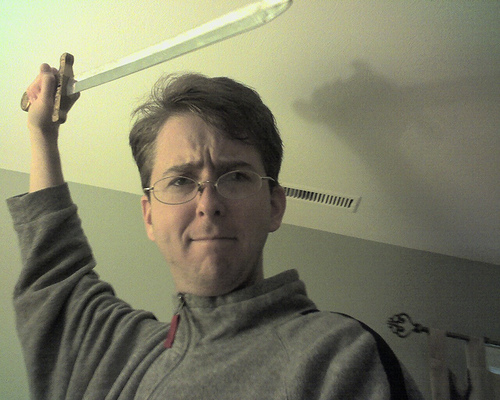If an injury is to be inflicted on an enemy, it is to be so severe, that the enemy’s retaliation need not be feared. – Niccolò Machiavelli

While this is one interpretation of the quote, there are other options in the modern world you might want to try first.
This quote is also seen stated as “If an injury has to be done to a man it should be so severe that his vengeance need not be feared.”
What does that mean?
This is a quote about finishing a fight. If you have to take an argument to the level of a fight (or it has been brought to you as a fight), if an injury is to be inflicted, the quote recommends that you finish it in a conclusive manner.
That might sound a bit brutal, but consider the alternative. Consider someone who is in a fight, but the other guy can’t finish it. The first guy gets knocked down, but keeps getting back up, time after time. Which is more merciful, to finish it quickly, or keep pounding it out, over and over?
Note that with Nations, or the City States of the quote’s era, this method does not require the razing of towns and villages, nor the plundering of the countryside. It only requires an injury to a peoples which is sufficient to break their will to resist. Similarly, with children, a wishy-washy “No” only serves to encourage them to try again. Sometimes something more stern is required.
Why is a decisive ending important?
What could be worse than lingering? Not knowing where you stood, not knowing what was next? This quote says if you’re going to do something, don’t let it linger. Make sure everyone knows exactly where things stand.
Whether it’s rounding up the traitors in your City State, or gathering your friends or family for an announcement, don’t let it linger. It might not be pleasant, but it is almost certainly better than leaving loose ends, or addressing the issue, but with insufficient effort or action to prevent it from recurring.
The point of the quote isn’t to hurt people, on the contrary, it’s designed to only hurt them once, and spare them a lingering existence of repeated injury. This applies to physical, as well as emotional, mental, and spiritual injury.
Where can I apply this in my life?
From disciplining a child to disciplining a traitor, what you are looking for is a modification of behavior that is rapid and permanent. You want to make sure there is no confusion in anyone’s mind that whatever it was, it is clearly over, and not to be repeated ever again.
This might have happened, if you and a roommate got into an argument, and when you get back, all your stuff is outside. That’s pretty decisive. While you might take it to another level, I consider any violent act not a retaliation for the prior act, but a whole new action. Those can rarely be prevented, excepting the most severe cases.
What about kids, underlings at work, or people under your authority, in any manner? What if one or more have acted up, and you need to not only put an end to that behavior, but ensure it never happens again? You might be able to get away with a minor chastisement, but it will probably be more severe.
But if you do it right, you shouldn’t have to worry about that person doing anything like that again. And, hopefully, anyone else who saw any of it will also think twice before trying anything like that again, either. At least that’s the theory.
On the other side, how does it feel when you don’t know where you stand? Have you ever made your boss or a parent so mad, they left the area before they told you exactly how much trouble you were in? There was no decisive ending, was there?
Similarly, have you ever been in a situation where you did something, and were punished with something trivial, and you did it again? Or something that insulted you so much you did it again to spite them? That’s what the quote is trying to prevent, right?
This quote leaves us a fine line to try to walk, being neither any more harsh than is necessary, yet still being as humane as possible. My kids, my co-workers, and my friends are all sufficiently mature that I can use reason, or at least make the attempt.
I let them know that what was done wasn’t acceptable, and that I expect that it won’t happen again. I usually leave them with a dire warning of what will happen if they ever mess up that way again. It has worked fairly well for me, and allows me some latitude with the injury done.
This was an interesting blog, as it is more a think-piece than a working exercise. With this quote, it’s application will be very specific to both the people involved, as well as the situation.
I would be interested in hearing back about what worked for others, and if my suggestion was of any use.
From: Twitter, @MrGart00
confirmed at : http://www.brainyquote.com/quotes/quotes/n/niccolomac386630.html
Photo by jblyberg

![But [Injury] does not give Virtue; therefore she cannot take it away.](https://philosiblog.com/wp-content/uploads/2014/07/4virtuesMedalion-150x150.jpg)




